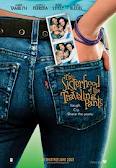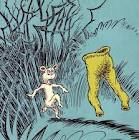by Jason Joyner | May 1, 2013 | Blog, revision can be fun, writing craft, Writing Wednesday
Ah, the best laid plans.
I’ve been trying to do Monday and Wednesday posts on the blog. They haven’t worked out that well lately.
I’m looking at how to work that out. Today I wanted to give a little blurb about how my fiction project is progressing.
I am almost done with my second revision. I have to write a new chapter and revise two more and then I’ll have finished. My plan at this point is to find a freelance editor to go over it and help me refine it more. Hopefully there will be enough time to do a third revision before I go to the ACFW Conference in Indianapolis in September.
If you don’t see me around here, I’m working on writing. Like, right now. Write now? I’m getting a little confused…
—

by Jason Joyner | Apr 10, 2013 | Blog, pants are preferable, plotting a way, potholes, writing craft, Writing Wednesday
Plugging away.
That’s how writing goes often. Keep chopping wood. Put more words on the page.
Writers know that there are two general methods for getting a story on paper. The plotters love to outline, charting each scene and building up a framework that their words can fill in. The pantsers, so named for writing by the seat of their pants, make it up as they go.
 |
| Not quite the idea… |
The plotters like knowing where they are going, having a map or blueprint to follow. The pantsers will tell you how their story can be more organic, being surprised by the twists and turns that pop up along the way.
How about a middle way?
Of course people do this all the time. You don’t have to be tried and true to one method to get to “The End.”
I was surprised when this started happening with me though.
I’ve always been an outline guy when writing papers. In college I would do my research, label it all out with Roman numerals and A. B. C., and when I was all done, write my final draft as my first draft. All done. Ready to go!
Yeah, it’s not that easy when writing a novel.
 |
| Closer? I dunno… |
I have a general outline in my head. I know where my protagonists need to be…eventually. I have the ending all worked out. There was just a little problem with the middle, and getting them to where they needed to be. A small issue.
I kept dealing with writer’s block whenever I finished a point on my outline. Where to go next? How do I get there?
I’ve started doing it by the seat of my pants.
A technique that I’ve found effective for me is to set my phone’s timer, meaning I can’t browse the internet for some obscure fact that I HAVE to have for my next scene, and start writing. It might not be the best prose in the galaxy, but I have made progress.
It has been propelling me past these sticking points. I’m forced to make a decision and go with it.
And there’s been some good stuff come out of it. Who would’ve guessed?
I still have my general outline and I still know where I want to end up. But the process of getting there has become more interesting. Hopefully it all turns out when I get there!
So if you’re writing and wondering how best to do get moving – do whatever it takes. There’s no need to just plot or pants it. The point is words on the page.
Time to go set my timer…
—
by Jason Joyner | Mar 28, 2013 | a little late, arts, Blog, CBA, men do read, writing craft, Writing Wednesday
OK, I’m only one day late ;).
Sometimes the discussion going on other places is too good to pass up.
Mike Duran, as usual, has some great, thought-provoking posts this week. He posted at Novel Rocket about Christian fiction marketing toward men. That started some chatter, so he continued his thoughts on his own blog Decompose. He wonders if the CBA is doing a good enough job reaching men with Christian fiction, both male authors and the readers. Is it a responsibility of religious publishers to reach out to men more effectively? Those are the questions asked at the two posts, and as a male reader and writer, they are very interesting to me. Check them out if you can.
Another post was by Jeffrey Overstreet, author of the Auralia’s Colors series. He brings up the idea of artistry versus message in fiction. I’ve agreed and disagreed with Overstreet on various aspects of this debate in the past. He is eloquent in his post and the comments below are worth the time to read. My friend Becky Miller makes some good counter-points there.
Both are good fodder for some deep thinking.

by Jason Joyner | Mar 20, 2013 | Blog, Boise, conference, fiction, writer's block, writing craft, Writing Wednesday
 |
| Bronco Nation |
Idahoans are used to being fodder when someone needs to reference a place in the U.S. that’s way out there. “They even know about this in Boise, Idaho!”
The Boise State Broncos and their blue football turf has helped change some of that (Go Broncos!) and given us more recognition. For writers, I have another reason why we’re not the remote, end-of-the-world place we may seem.
I just returned from the Idahope Writers Conference in Boise – the Idaho chapter of the ACFW. It was a great one day conference, and we didn’t lack for being potato heads.
So I’d like to share some gleanings I got from our author panel, which included:
These fine wordsmiths were asked several questions. One that interests all writers is, “How do you overcome writer’s block?”
Ellis: Finish your writing day with a scene hanging. When you come back, you have something to return to.
Hatcher: You need to know your characters better, or you’re trying to force them to do things that goes against their nature.
Collins: Kicking cabinets always helps!
Leavell: Read authors you hate. Then you’ll say, “I’m better than them!” Voila, instant motivation.
Williamson: Sometimes you have to make yourself. If you’re really stuck, skip to a fun scene or something you know is needed to keep you going.
Hatcher: Sometimes the blech, the garbage just has to come out, in order to let the good stuff start flowing.
There’s a sampling of what our day was like. Thanks to all who made the Idahope Conference such a success. And here’s to writers and blue Smurf turf!
—

by Jason Joyner | Feb 27, 2013 | Blog, critique, fiction, revision can be fun, writing craft, Writing Wednesday
 |
| Work that cerebral cortex! |
You’ve heard of muscle memory, right?
Athletes will do an activity over and over again until their body automatically does something. They don’t have to think about it, so they are able to focus on the bigger picture. They’re not the only ones that use muscle memory though. We writers have it in our fingers if we type. My boys are amazed at how fast my fingers can fly over the keyboard. Even though it isn’t always the highest accuracy, I still have good speed because I do it so much.
Do you exercise your critiquing muscles?
I’ve done some critiques with people along this writing journey, but it hasn’t been regular. Lately I’ve had more opportunity to offer suggestions to people. I’ve found an online critique partner, and I’m participating in the ACFW critique email loop.
Even though having my work reviewed is a bonus to find those words and phrases I’m blind to, I think the greater benefit is getting to critique people.
I’ve been reading books on craft, quality novels, and blog posts for years now. I’ve assimilated a lot of knowledge. But nothing beats the application of knowledge to truly get it.
Now that I’m looking at other people’s work and offering suggestions, I understand the reason for minimizing speaker tags. I see the flow of logic and the motivation/reaction unit so much better. By using it in other people’s writing, I’m developing muscle memory in looking for these things.
The end result is that I’m then able to take it back to my own work and see weaknesses better.
Of course we’re still going to have blind spots, but I’m amazed how things pop out at me more. It shouldn’t be surprising. Practice makes perfect, right?
If you get a chance to participate in a critique group, remember that it benefits you in more ways than one. It’s always good to help others and be a blessing when you are able, but you’ll get more than other people’s perspectives on your writing. Your perspective on your own writing will grow.
—

by Jason Joyner | Feb 13, 2013 | Blog, editing, fiction, where's my scalpel, writing craft, Writing Wednesday
 |
| Time for the paper to bleed |
Howdy y’all.
I missed a couple posts between work and that editing thing. That fuuuun thing writers love to do.
Revision.
I’ve talked about this before and actually liked it at one point. It felt good to go back and rework a few chapters for a contest. Fix the sagging areas. The sharp areas got some extra sharpening. Polish it up to be shiny.
On the novel scale it is a little…harder.
It is a real trick making the writing tighter, building up and tearing down, and keeping everything flowing together. I’ve made some changes to the plot to heighten the tension. Now I have to follow the consequences through. Stupid butterfly effect.
I’m also dealing with word count issues. Most authors have to cut a lot of words to get it into range for their genre. I’ve got the opposite problem. I need to add 15,000 words. I’ve introduced a new major hurdle for my protagonist to overcome, but I’ll probably need to tweak some more things to expand the words without resorting to filler (Jenna was really, really, really, really, really tired from the flight).
It proves that writing a novel is a difficult task. I used to wonder if I’d finish my book at all. Now that I’ve done a draft, I wonder if I can wrestle it down and make it work from start to finish. I’ve come this far so I’m not going to stop. Thankfully I’m developing some trustworthy critique partners to help with things. (You should see how many times I use ‘turning’ in the text. Sheesh.)
What about you? What are your challenges with editing/revising? Are there parts of it you like? Any good tips for your fellow writers?
—




